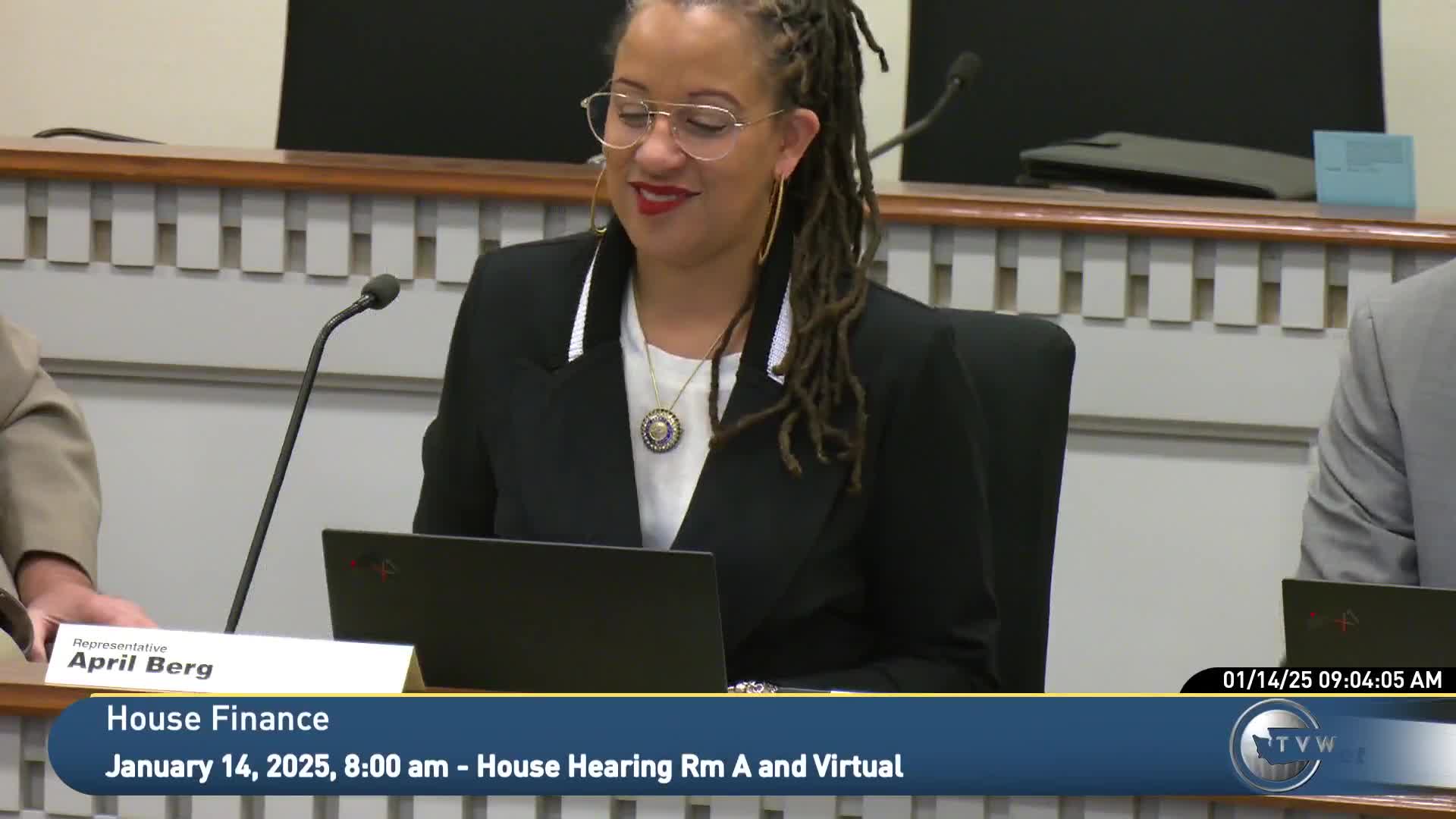DOR reports rising participation for Working Families Tax Credit in second year of administration
Get AI-powered insights, summaries, and transcripts
Subscribe
Summary
The Department of Revenue reported a 22 percent increase in refunds and faster processing for Washington’s Working Families Tax Credit in its second year, highlighted outreach grants, new prepaid debit card options and plans to integrate with IRS Direct File and TurboTax.
The Department of Revenue (DOR) briefed the House Finance Committee on Jan. 14 on year‑two administration of the Working Families Tax Credit (WFTC), a refundable tax credit for low‑ and moderate‑income households enacted in 2021.
Steve Ewing, legislative and external affairs liaison for DOR, said DOR estimates about 350,000 eligible households statewide based on IRS and other data. The credit mirrors federal EITC eligibility in many respects and the amount varies by income and number of qualifying children; households with qualifying children received the majority of refunds in year two.
DOR reported year‑over‑year increases of 22 percent in refunded applications and 28 percent in dollars refunded. The department attributed gains to expanded application windows (legislation allowed retroactive claims for three prior tax years), outreach grants ($5 million provided to community organizations), an expanded MEF vendor list, and partnerships with state agencies that sent mailings to potential eligible households. DOR said two‑thirds of refunds were issued within 30 days in year two (up from roughly half in year one) and the average refund was about $750.
DOR said it added prepaid debit cards as an option to reduce check‑cashing barriers, added Spanish written correspondence, and planned TurboTax onboarding and fuller integration with the IRS Direct File program in coming years to make the credit more accessible. DOR also noted roughly 9 percent of refunds went to households including at least one ITIN holder and that outreach efforts targeted hard‑to‑reach communities.
